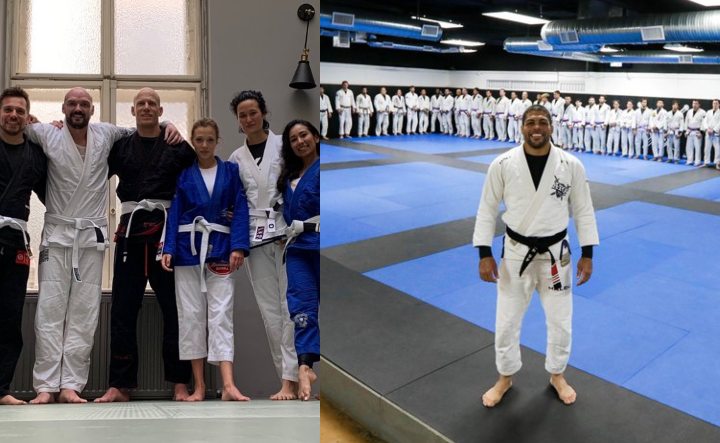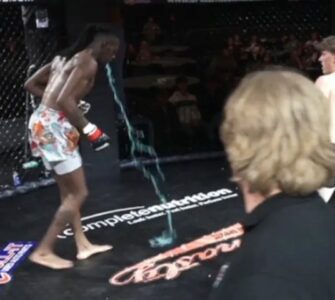Every BJJ competitor wants to reach the pinnacle of the sport and sit among the elite of his division. That’s why we all grind on the mats, in the weights room, we sacrifice time with family and friends, and invest a lot of finances. But does our success depend entirely on our efforts? In this article we are going to take a look on how important are academies and affiliations for BJJ competitors by analyzing what divides “big” teams from “small” teams and the pros and cons of both.
Let’s say a big team/affiliation is a team with a long history in the sport that has won a lot of trophies from major competitions and has been able to attract a lot of students and expand into a worldwide brand. Some examples of that kind of teams are Atos, Gracie Barra, Alliance and Zenith. Opposite of those are BJJ teams with not much of a history, not many trophies, not many members and often situated in small towns or suburbs of cities.
What are the pros and cons of being part of a big team?
The biggest pros for competitors training in headquarters of big affiliations is definitely the wide variety of high level training partners you can scrap with and the opportunity to be taught by living BJJ legends from the past. Not only the skills that you acquire are to be highly valued. Your confidence when you step on the mats will likely be higher because you were struggling with “killers” everyday and a legend like Marcelo Garcia, Romulo Barral, or Andre Galvao is in your corner. This may also result in better referee decisions for you. Many of the IBJJF referees are part of those big affiliations and may even be your remote teammates. Another perk of big teams are the facilities. They are usually better for big teams due to the fact that big teams make more money from memberships and sponsorship deals.
On the other hand, membership fees are higher in big teams and unless you’re Matheus Diniz or Josh Hinger you`re gonna have to pay them or teach kids/beginner classes in exchange. Team politics might restrict you from training elsewhere with rival teams and you could be obliged to wear specific training gear and patches in the gym and at competition. Big teams usually have busy schedule and the rules might not allow you to use the mats as much as you want and drill before or after class. You also have to settle with being one of the many students in the team and accept the fact that you cannot have as much attention from your coach as you might want.
What are the pros and cons of small teams?
Being part of a team with not much of a history and a few members can actually be beneficial for you in many ways. You’d be able to build a stronger relationship with your teammates and coaches as you would have to spend day after day sweating and bleeding with them. Furthermore, you will be pushed to come up with something new every sparring session in order to catch your partners by surprise. Training with the same small group of partners may result in them knowing all about your game, so you have to be creative. Your coach would have way more time and energy to modify techniques and concepts for your BJJ style and you can personalise your game faster and specialize in certain aspect of BJJ (leglocks, berimbolos, worm guard, etc.). Smaller teams don’t have as busy schedule as bigger ones, so you would be able to practice before or/and after class and get better quicker. Your membership fee will be smaller and small teams are not really insisting on specific training gear. Being from a small team can actually help you making more impact on the BJJ scene, if you win something big. People love stories about winners coming out of nowhere. A good example of that is Craig Jones, who made a name of himself by winning matches against Leandro Lo and Murilo Santana at ADCC 2017 even though he had been training in a small team in Australia.
Another great example is Andre Wiltse. He has won the IBJJF World Championships five times and the IBJJF Pan Championships six times. Most recently he became a brown belt No Gi world champion and achieved his black belt on the podium. He is part of a small team called Pedigo Submission Fighting located in the middle of nowhere in a moldy gym in Mt. Vernon, Illinois.
Isaque Paiva, who has been representing the small team Saikoo Jiu Jitsu Academy from Penapolis, Brazil since day one, is considered to be one of the best featherweights in recent years. He has competed against the top athletes in the division and has won numerous open tournaments in Brazil, Asia and Europe and has been crowned eight times as the IBJJF South-American Champion at -70 kg.
However, the lack ot different bodies to train with may be harmful to your results. You might lose to somebody in competition just because you were not prepared for his style and body type. Yes, nowadays you can get all the information in the world through Internet, but challenging yourself in the gym against different people with different techniques everyday is crucial, if you want to be prepared adequately. As a member of a small team you might also not get essential details for competition and physical preparation as you would get from Andre Galvao in Atos HQ or Romulo Barral at Gracie Barra Northridge. Another minus is that you might not be able to get the same participations in submission-only events or invitational tournaments as somebody from a big team. Your coach might not be able to “pull some strings” for you.
A suggested solution for members of small teams who want to win big.
Go and do a training camp before a big competition with some big names. Your coach should totally understand you and even be happy about it, because you will bring knowledge and experience with you on the way back. Stay loyal to your team, if you are being treated with respect and never forget your roots. As shown from the examples above it`s not absolutely necessary to train full time in a big team, but it will definitely boost your game and will stay with you forever as a useful experience.

















